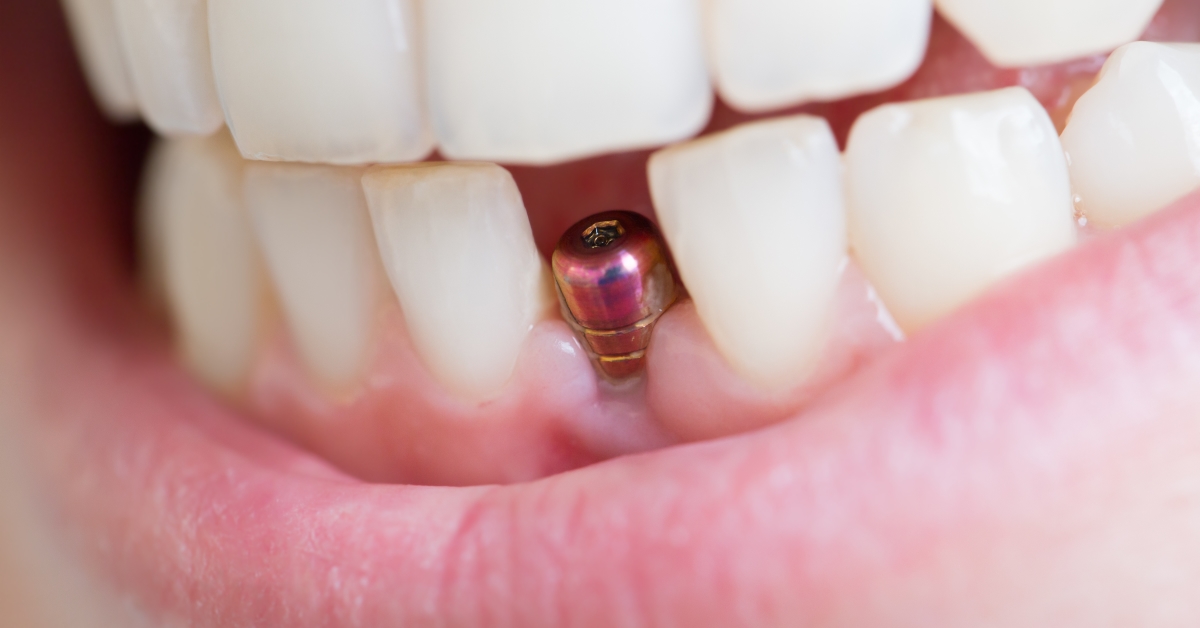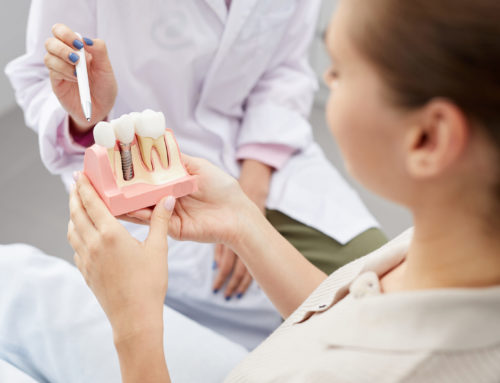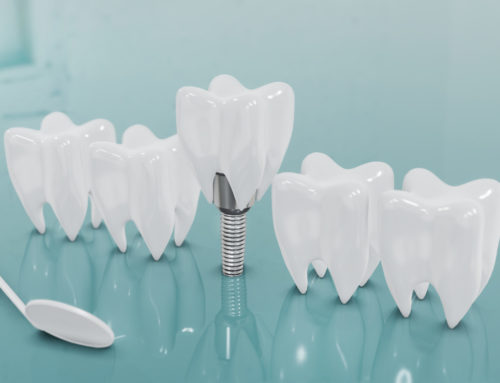The big question is… Are dental implants painful? This is probably the first thing you’ll ask your oral surgeon when you’re considering replacing your damaged or missing teeth.  Although dental implant surgery might seem like a minor issue, the fact is that it’s still a surgical procedure. So, of course, there will be a short period of discomfort or pain associated with post-surgery downtime. But keep reading!
However, there are ways you can manage your post-surgery period and keep discomfort down to a minimum. Much of it has to do with following proper instructions, getting adequate rest, and having all the pertinent information before surgery. However, your first step towards a good understanding is to know exactly how the procedure works.
The Procedure for Dental Implants
Dental implants have truly advanced over the years. The procedure now has divided phases, depending on whether you’ll require bone grafting or a combination implant. If you need bone grafting, the treatment could take several months to ensure that your jaw is strong enough to support the new tooth.
Once the bone is strong enough, you’ll be ready for the implant installment phase. You will not experience any pain what-so-ever during the surgery because you will be under sedation. An oral maxillofacial surgeon will place the high-quality titanium or bonded porcelain implant into your dental bone. The implant acts as a root for the new tooth. The surgeon will also place a temporary crown on top of the implant tip after a few days of healing time.
Finally, once you’ve reached full healing, you’ll get your permanent abutment for the implant. The oral surgeon will place this on while you’re under local anesthesia. The permanent crown is placed on top of the abutment to finish the entire process.
The Downtime
During the downtime after dental implant surgery is usually when patients may experience some level of pain and discomfort. Like with any surgery, you’ll have some pain afterward because your body has experienced trauma and nerves are waking up. Fortunately, you will have prescribed medications to help you manage any discomfort after the procedure.
However, as far as downtime and how long a person may experience post-op pain will vary. This will depend on the kind of dental implants you received or if you require bone grafting. But the general recovery time after the procedure is between 5 to 7 days. If the pain lasts for more than 2 weeks after surgery, however, or if you develop a fever, there could be an infection. Therefore, it’s crucial that you contact your oral surgeon immediately.
Aftercare
After surgery, if you try to rush through your recovery, you’ll only make it take longer. As a rule of thumb, the more you follow the after-care instructions for dental implants, the less pain you’ll experience. However, NOT following instructions will not only increase pain levels but also increase risks of developing further complications. So, there are a few things you need to do and avoid to ensure that you stay healthy.
What To Do
-
- During your recovery period, make sure not to disturb the affected area too much as there will be swelling.
- Icing this area according to surgeon instructions will help numb the pain and reduce swelling.
- Take your prescribed medications on schedule. This is the best way to avoid pain while your gums and dental bones are trying to heal.
- Also, you need to practice very specialized oral care and hygiene during this time to avoid further infections. Rinsing according to instruction is vital to the healing process.
- Your surgeon will notify you of when to return to normal oral care after healing. Be sure to follow your normal daily dental care routine of brushing and flossing as the surgeon instructs you.
- As with any surgery, rest is extremely important to recuperate, as well as regular follow-ups with your dental care professional.
What Not To Do
-
- Avoid foods and/or drinks that are hot, hard, carbonated, or sticky during post-surgery. Such things can irritate the surgical area and cause discomfort, or dislodge clots, and you’ll have a major problem.
- The leading cause of slow healing, however, is post-surgery smoking and using tobacco products. Avoid smoking for as long as possible, or you could slow or even completely stop the healing process.
- Do not participate in extremely vigorous physical activities. Such activities will either slow or completely impede the healing process. Remember, your body needs time to heal, so rest promotes healing and reduces pain.
- Finally, failing to keep up with dental hygiene can cause infections. This can also be extremely painful along the gumline and promote plaque buildup.
Common Misconceptions About Dental Implants
One of the most common misconceptions associated with dental implants is that they are expensive and extremely painful. This is far from the truth. Over the years, implants have not only become a lot more affordable, but the downtime for pain recovery doesn’t last more than a week. Also, not all implants are the same; choosing what implant you get can also determine the recovery time as well as the level of pain you may experience.
If you live in the Greater Houston area and need more information about dental implants, talk to the professionals of OMSH. We are experienced dental physicians who understand the ins and outs of today’s implant procedure options. Call us at 713-804-6055 to schedule an appointment.





